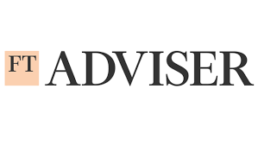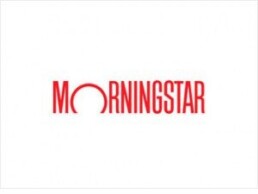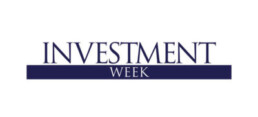The classic 60/40 portfolio no longer suits retirees
Reports of the death of the 60/40 portfolio for retirees have not been exaggerated. Most top advisers have abandoned balanced portfolios containing a split of 60% equities and 40% bonds for their income-seeking clients.
Interest rates 'very unlikely to go up this year'
Investors say it would need a big inflation shock for the Bank of England to hit the economy with higher borrowing costs.
The World In A Week - The Dot-Plot Thickens
Last week saw the Bank of England signal their intention to raise interest rates from February 2022 with mounting concerns regarding this “transitory” inflation. Interest rates are currently at 0.1%, having been cut from 0.75% in February 2020 following the COVID-19 pandemic. The emergence of this news resulted in lower demand for UK Government debt which saw the 10-year gilt yield rise to 0.88%, its highest level for over 3 months. The Federal Reserve announced it would keep rates the same at 0.25% and will likely begin raising rates in 2022. The Federal Open Market Committee also stated that it will start pulling back on the pace of its monthly bond repurchases from November and is expected to release a schedule at November’s meeting.
The Bank of England Monetary Policy Committee expect inflation to rise further as we head into the winter season. We are already seeing visual evidence of this from the fuel-driver shortage which has caused mass disruption to fuel supply levels. Brexit is partly to blame for this, given numerous EU-born drivers fled back home to continental Europe, and the pandemic slowed down the ability to get new HGV drivers trained up. The British transport department announced that 5,000 foreign HGV drivers would qualify for temporary visas up until Christmas, to ease the pressure on domestic supply chains, but it remains unclear whether this will be enough to fix the situation. A further 5,500 visas have been made available for poultry workers to protect the food industry from facing similar issues.
The Furlough scheme, that ends on 30th September, has also contributed to the lack of fuel supply with workers not rushing to get back into employment. With the scheme entering its final week of operation, Rishi Sunak hopes this will rectify the supply of labour shortage we are currently experiencing. On paper, the Furlough scheme has cost £70bn over the last 18 months but has supported over 9 million jobs and protected thousands of British businesses that would have otherwise struggled to remain in operation.
Elsewhere, last week saw the climax of the German elections which will see Angela Merkel end her 16-year term as Chancellor of Germany. Expectations are that Germany's centre-left Social Democrats (SPD) will beat the Conservatives (CDU) in federal elections. However, should there be no clear majority, which is the most likely scenario, a coalition deal will have to be struck.
Any opinions stated are honestly held but are not guaranteed and should not be relied upon.
The information contained in this document is not to be regarded as an offer to buy or sell, or the solicitation of any offer to buy or sell, any investments or products.
The content of this document is for information only. It is advisable that you discuss your personal financial circumstances with a financial adviser before undertaking any investments.
All the data contained in the communication is believed to be reliable but may be inaccurate or incomplete. Unless otherwise specified all information is produced as of 27th September 2021.
© 2021 YOU Asset Management. All rights reserved.
The World In A Week - All Over the Shop
After a sedate summer, August has proved to be a bit more of a challenge for markets as global equities (as measured by the MSCI All Country World Index in GBP) lost -0.2% last week and are now down -1.3% for the month to date. Japanese equities have massively bucked the global trend this month, rallying +7.2% in GBP as the market cheered the resignation of Yoshihide Suga from the position of Prime Minister following a disappointing initial vaccine roll-out. We have benefited from our overweight to Japanese Equity and believe many of the reasons we have liked the market are now being given more attention by other global investors.
Market commentators are of course always on hand to offer explanations for the softness in performance we have witnessed this month. Our view is that it is likely a confluence of factors, after a period whereby equity returns have essentially gone in a straight line up and to the right this year.
Inflation is the most important topic that is being debated, and the debate is likely to rage for longer than most anticipated. Inflation data is all over the shop (pun intended). “Core” inflation in the US, which excludes volatile food and energy prices, was up only +0.1% in August, but this was supressed by airline tickets and used cars (which had risen sharply in prior months) rolling over, likely due to the persistent but manageable COVID-19 delta wave in the U.S. For September to date, used cars are once again looking like a positive contributor, as are energy prices, given the brewing energy shortage we are witnessing in Europe. Sky-high shipping costs, as well as labour and delivery shortages, across the globe give credence to our view that inflation might stick around a bit longer than expected. Indeed, the Nespresso capsules which power this update took over a week to deliver for that very reason(!).
Given our steady but pro-active approach, there are already multiple exposures in our portfolios that actually stand to benefit from higher inflation and the resulting higher interest rates, including our short-dated inflation linked bonds, Property & Real Assets and value equities.
Further afield, coffee is not the only thing that has been brewing, as there could be potential trouble on the horizon from the anticipated default by Evergrande, the world’s most indebted property developer. The Chinese behemoth owes more than $300bn to creditors, including a crucial interest payment due on Thursday. One of our Absolute Return managers has been buying protection against the consequences of such a default getting out of hand. As ever, challenges present opportunities.
Any opinions stated are honestly held but are not guaranteed and should not be relied upon.
The information contained in this document is not to be regarded as an offer to buy or sell, or the solicitation of any offer to buy or sell, any investments or products.
The content of this document is for information only. It is advisable that you discuss your personal financial circumstances with a financial adviser before undertaking any investments.
All the data contained in the communication is believed to be reliable but may be inaccurate or incomplete. Unless otherwise specified all information is produced as of 20th September 2021.
© 2021 YOU Asset Management. All rights reserved.
The World In A Week - Wars on all Fronts
Last week was generally negative for equity markets. Most regions sold-off around -1%, with the FTSE All Share Index in the UK down -1.5% and the S&P 500 in the US down -1.6%. There were some exceptions to this, with MSCI Japan +3.6% and MSCI China +1.1%. Our overweight exposure to Japanese equities will have been a positive contributor to performance.
Last week marked the 20th anniversary of 9/11. A terrible event and a scar on human history, one which has left a deep national trauma on the US. The last twenty years has seen the US spend trillions of dollars trying to rid the world of terrorism.
At the same time the war on COVID-19 continues around the world. As the delta variant wreaks havoc in the US, President Joe Biden has gone on the offensive against anyone who is not willing to be vaccinated and federal employees could be fired if they do not take the vaccine. Israel, which has been one of the leading nations with vaccine rollout, is now one of the world’s biggest pandemic hotspots. There are stark warnings coming out of Africa that the proliferation of COVID-19 variants could lead to vaccine-evading mutations. In the UK, preparations are starting for a program of “mix and match” of coronavirus vaccines as booster shots, to fight against such possible mutations.
In big tech land – Apple has been fighting its own wars in the courts against Epic Games. Apple has been ordered by a federal judge to substantially alter its business model, forcing them to allow its developers to “steer” customers away from Apple’s payment processing service. The ruling, one of the first major legal actions taken against a tech giant in a new era of antitrust scrutiny, is sure to echo loudly in Washington where a legislative effort to rein in the power of Big Tech is underway. This fight could have many ramifications and is one to watch. Apple’s stock price fell -3.5% on the announcement of the ruling.
Any opinions stated are honestly held but are not guaranteed and should not be relied upon.
The information contained in this document is not to be regarded as an offer to buy or sell, or the solicitation of any offer to buy or sell, any investments or products.
The content of this document is for information only. It is advisable that you discuss your personal financial circumstances with a financial adviser before undertaking any investments.
All the data contained in the communication is believed to be reliable but may be inaccurate or incomplete. Unless otherwise specified all information is produced as of 13th September 2021.
© 2021 YOU Asset Management. All rights reserved.
UK economy flatlined in July
Our Chief Executive, Derrick Dunne, commented on the latest UK GDP Statistics: "Growth of only 0.1% in July falls well below even cautious expectations".







The World In A Week - Facebook, faceplants
Equity markets were generally flat last week in Sterling terms, with the only real exception being MSCI Japan that sold-off -3.0% in Sterling terms, though a large portion of this was down to Yen weakness, which declined -1.7% versus the pound. The environment continued to be challenging for bond markets, the focus on inflation expectations and the forward-looking interest rate environment drove yields higher. The Barclays Global Aggregate Index and the Barclays Global High Yield Index sold-off -1.4% and -1.3% respectively.
With the third quarter earnings season still a week away, the focus during the week was on the September payroll numbers coming out of the US. The report came as a disappointment, with payrolls rising $194k in September versus expectations of $500k. However, details within the report illustrated bright spots, and likely positive enough to keep the Federal Open Market Committee (FOMC) on track to announce the beginning of tapering at their November meeting. Some of the positive read throughs from the Non-Farm Payrolls (NFP) included an increase in the average work week and average wages, which should ultimately help increase spending. Despite the overall lacklustre report, bond yields reacted in-line with the expectation for the Fed to proceed with tapering, as the US 10-year treasury yield closed above 1.6% for the first time since June.
On the corporate side, we did have a few announcements. PepsiCo, in the US beverages sector, beat expectations as they saw stronger organic sales driven by their international business, which is potentially a positive evaluation for multi-nationals. The Company’s gross margins missed their target due to higher costs/labour, which is not a huge surprise in this extraordinary inflationary environment. Levi’s (US clothing and apparel) also stood out, beating and raising expectations, as they were able to offset cotton price headwinds by pricing power. The moral of the story appears to be that pricing power, and a strong brand, is what is likely needed to win in the current inflationary environment.
Last week was one that founder and CEO of Facebook, Mark Zuckerberg, would probably rather forget. At a U.S Senate hearing, whistle-blower Frances Haugen called out the social media behemoth for allegedly placing profit before child safety, society, and democracy. Amid a storm of criticism, Zuckerberg responded with a “not true”. To compound matters, Facebook services including Instagram and WhatsApp went dark for several hours, making a winner out of Snapchat and helping send Facebook shares down the most since the coronavirus pandemic began.
Any opinions stated are honestly held but are not guaranteed and should not be relied upon.
The information contained in this document is not to be regarded as an offer to buy or sell, or the solicitation of any offer to buy or sell, any investments or products.
The content of this document is for information only. It is advisable that you discuss your personal financial circumstances with a financial adviser before undertaking any investments.
All the data contained in the communication is believed to be reliable but may be inaccurate or incomplete. Unless otherwise specified all information is produced as of 11th October 2021.
© 2021 YOU Asset Management. All rights reserved.